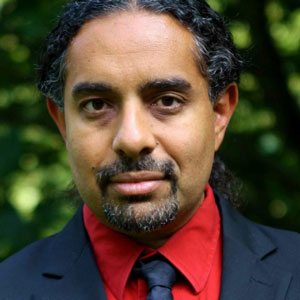 This lecture was presented as part of The Long Now Foundation’s monthly Seminars About Long-term Thinking.
This lecture was presented as part of The Long Now Foundation’s monthly Seminars About Long-term Thinking.
Enhancing Humans, Advancing Humanity
Wednesday July 22, 02015 – San Francisco
Video is up on the Naam Seminar page.
*********************
Audio is up on the Naam Seminar page, or you can subscribe to our podcast.
*********************
Enhancing humans and humanity – a summary by Stewart Brand
Beginning with the accelerating pace of biotech tools for human health and enhancement, Naam noted that health issues such as disease prevention will be drastically easier to implement than enhancement. Preventing some hereditary diseases can be done with a single gene adjustment, whereas enhancement of traits like intelligence or longevity entails the fine tuning of hundreds of genes. He favors moving ahead with human germline engineering to totally eliminate some of our most horrific diseases.
Over time he expects that human gene editing will lead in the opposite direction from the enforced conformity depicted in Brave New World and the film “Gattaca.” Instead people will relish exploring variety, and the plummeting costs of the technology will mean that the poor will benefit as well as the rich.
Naam’s brain discussion began with the Sergey Brin quote, “We want Google to be the third half of your brain.” Brain interface tools are proliferating. There are already 200,000 successful cochlear implants which feed sound directly into the nervous system. There is a digital eye that feeds pretty good visual data directly to the brain via a jack in the side of the user’s head. There is a hippocampus chip that can restore brain function in a rat.
Rat brains have been linked so that what one rat learns, the other rat knows. The paper on that work was titled “Meta-organism of Two Rats on the Internet.” Humans also have been linked brain to brain at a distance to share function. Zebrafish have been lit up to show all their neurons firing in real time. Coming soon is the deployment of “neural dust” that can provide ultrasonic communications with tens of thousands of neurons at a time.
How profound are the ethical issues? Naam observed that we already have many of the attributes of telepathy in our cell phones and smart phones. They came so rapidly and cheaply that they erased most of the concerns about a “digital divide.” Half of the world is now on the Internet, with the rest coming fast. And rather than a divider, the technology proved to be an equalizer and a connector, fostering economic growth and the rapid spread and sifting of ideas.
Digital connectivity, he argued, is widening everyone’s “circle of empathy.” A viral video started the Arab Spring. Viral videos are changing how everyone thinks about race in America. These technologies, he concluded, are making humans more humane.
One question from the audience inquired about the origin of so much reference in the Nexus series to group meditation as the epitome of mind sharing. Naam noted that Buddhists, including the Dalai Lama, are highly interested in brain science, and his own experiences of the ecstacy of mind sharing were at a rave at Burning Man and a ten-day Vipassana Meditation Retreat in Thailand.
I asked if he agreed with the current round of panic about superintelligent artificial intelligence posing an existential threat to humanity. He said no. The dark scenarios imagine an AI so smart it implements new and grotesquely harmful pathways to solve a poorly contextualized problem. Naam pointed out that “Software almost never does anything well by accident.” (A flock of Tweets burst from the theater with that line.) And the dark scenarios imagine an isolated rogue super-capable AI. In reality nothing really capable is developed in isolation.
Subscribe to our Seminar email list for updates and summaries.